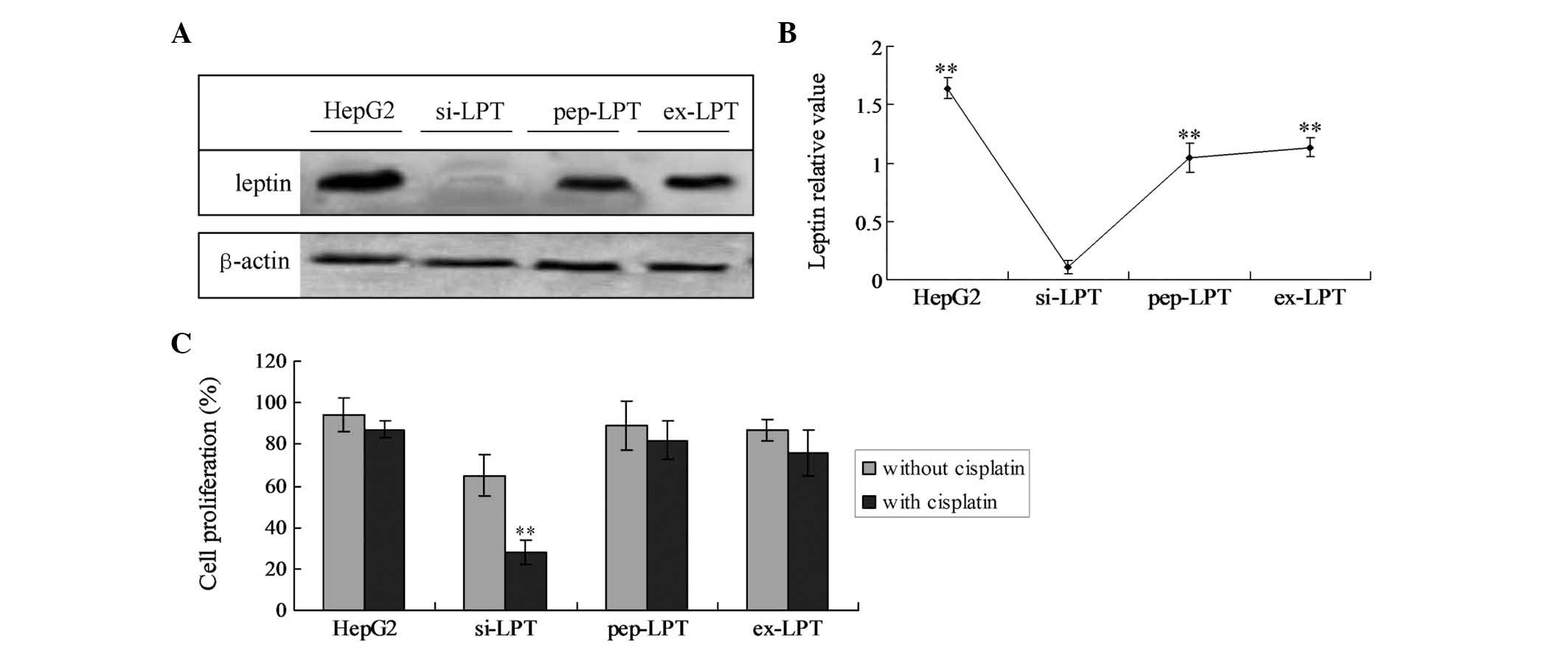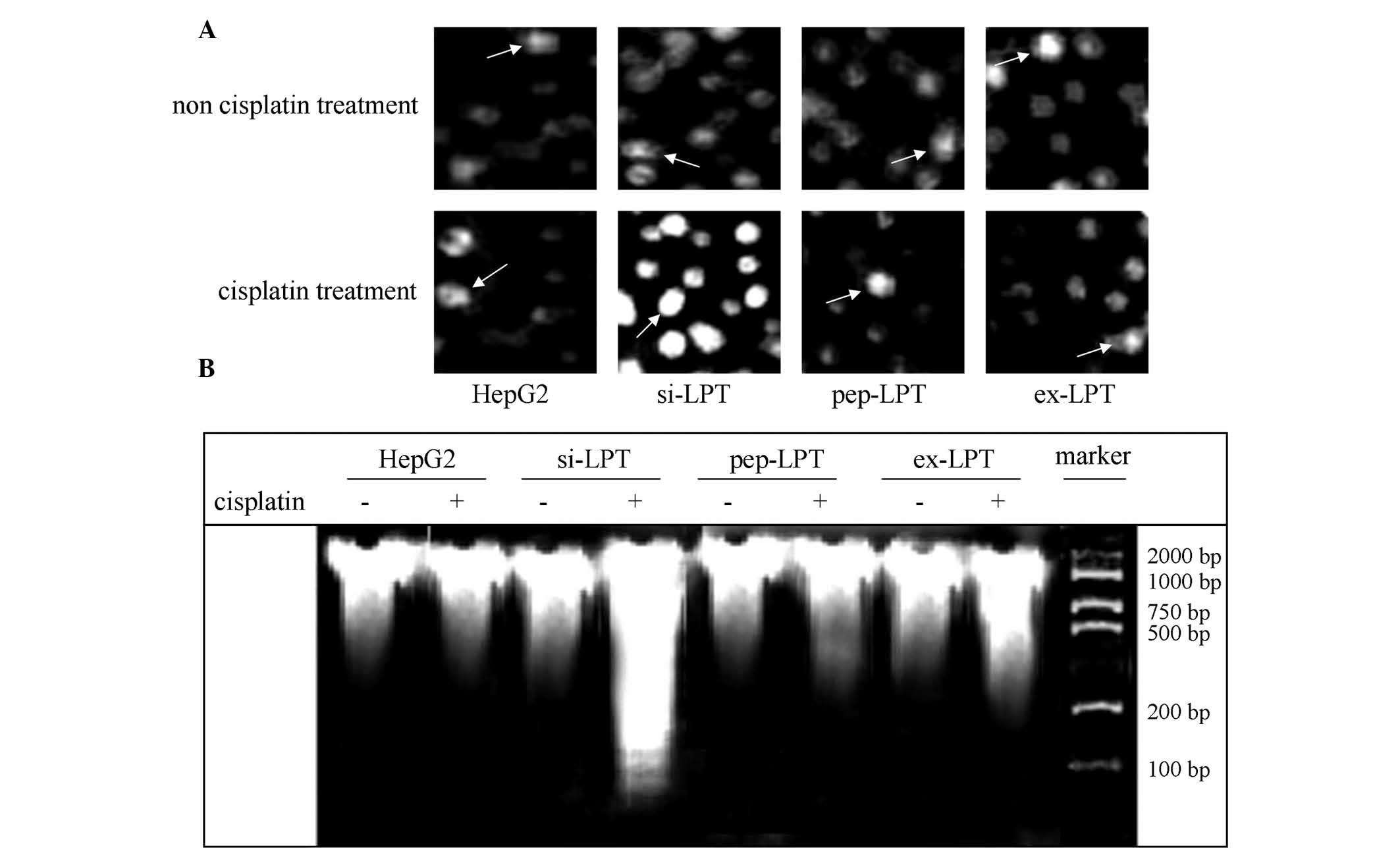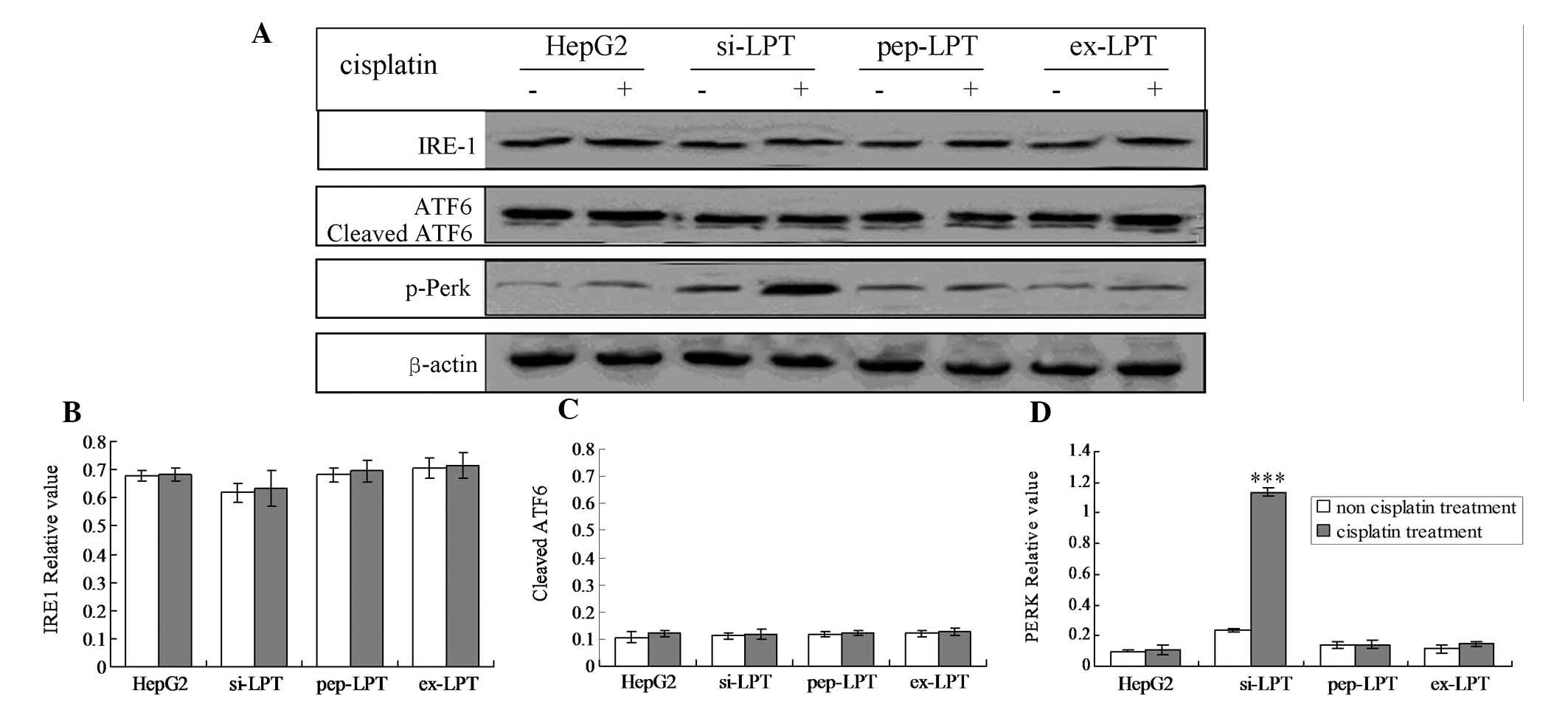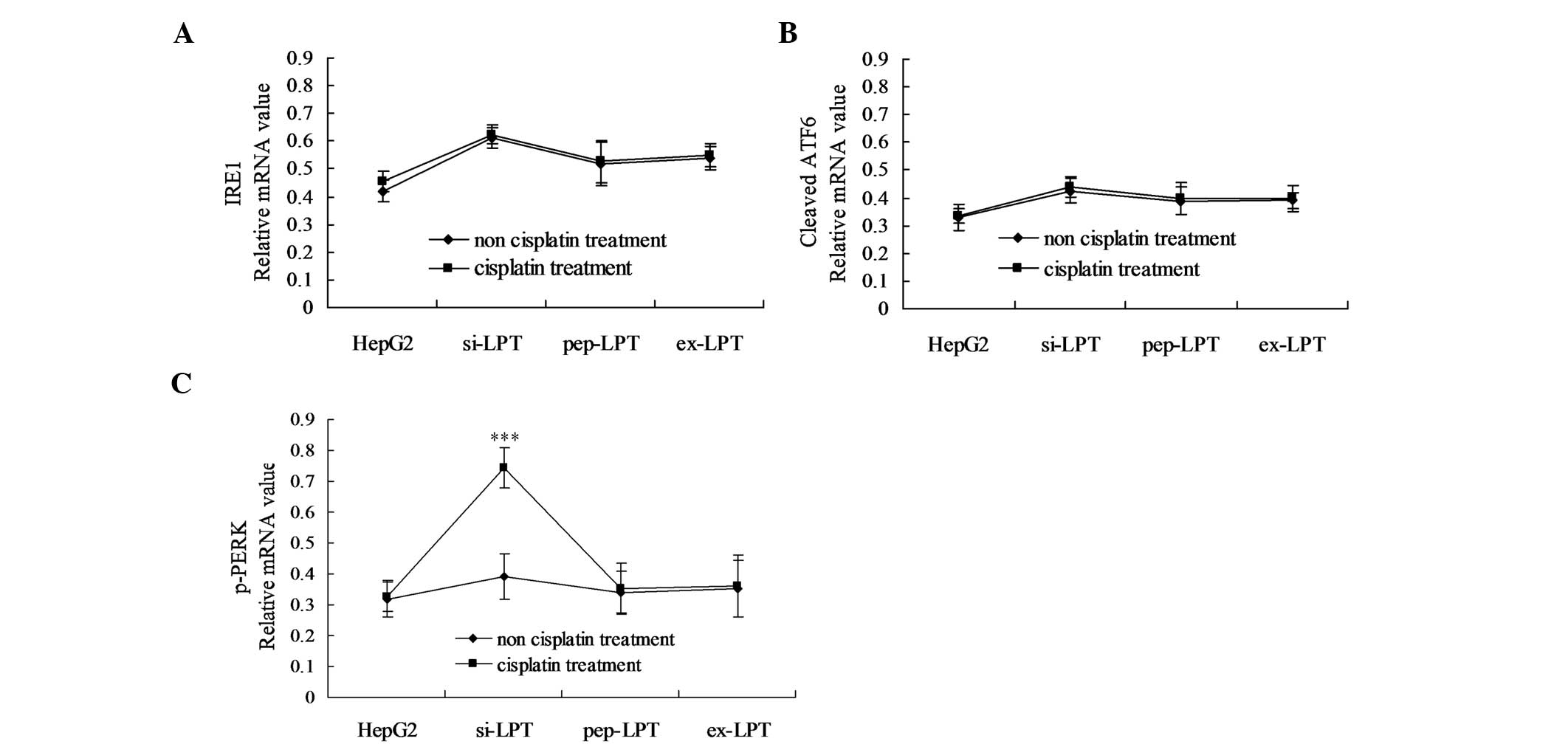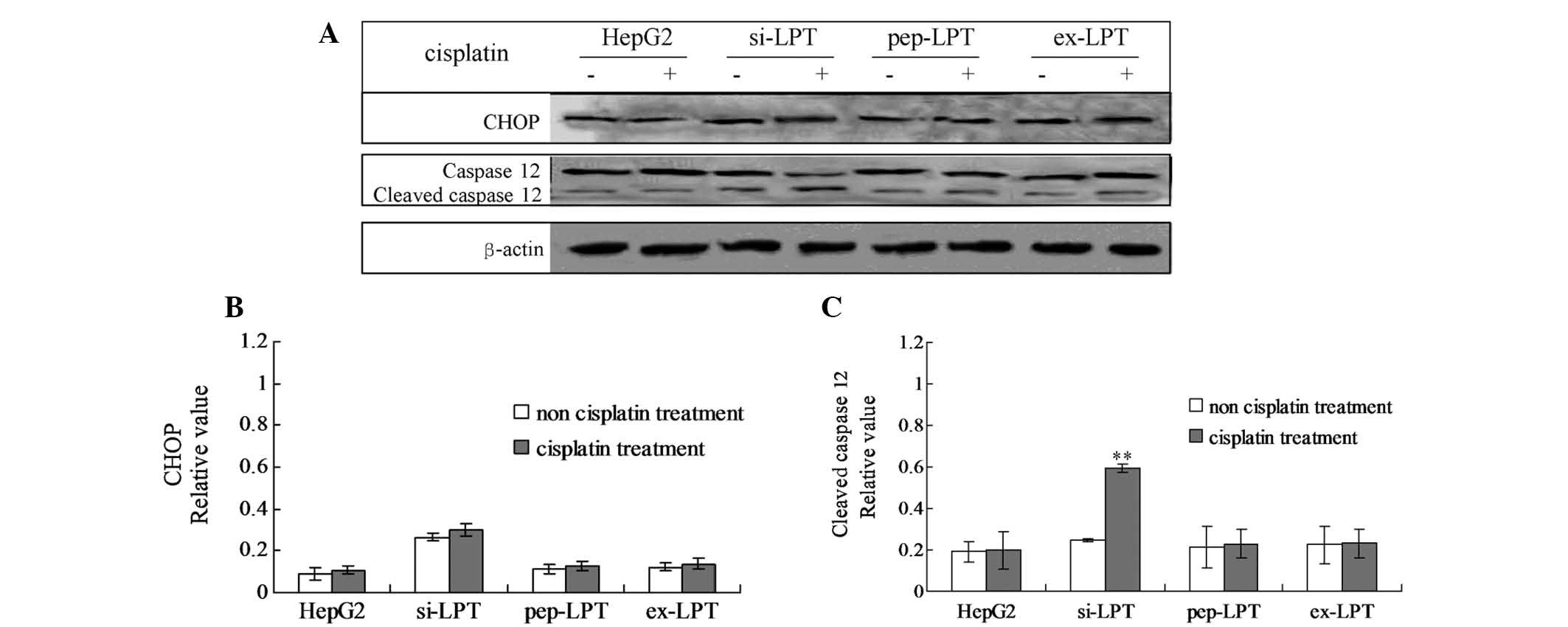|
1
|
Wang Y, O’Connor M, Xu Y and Liu X:
Symptom clusters in Chinese patients with primary liver cancer.
Oncol Nurs Forum. 39:E468–E479. 2012. View Article : Google Scholar : PubMed/NCBI
|
|
2
|
Li Y, Huang X, Zhang Q and Ma K:
Phosphorylation of cMet tyrosine residues in murine ascetic hepatic
cancer cell lines with different lymph node metastatic potentials.
Mol Med Rep. 8:655–661. 2013.PubMed/NCBI
|
|
3
|
Yang X, Zu X, Tang J, Xiong W, Zhang Y,
Liu F and Jiang Y: Zbtb7 suppresses the expression of CDK2 and E2F4
in liver cancer cells: implications for the role of Zbtb7 in cell
cycle regulation. Mol Med Rep. 5:1475–1480. 2012.PubMed/NCBI
|
|
4
|
Xu C, Bailly-Maitre B and Reed JC:
Endoplasmic reticulum stress: cell life and death decisions. J Clin
Invest. 115:2656–2664. 2005. View
Article : Google Scholar : PubMed/NCBI
|
|
5
|
Moenner M, Pluquet O, Bouchecareilh M and
Chevet E: Integrated endoplasmic reticulum stress responses in
cancer. Cancer Res. 67:10631–10634. 2007. View Article : Google Scholar : PubMed/NCBI
|
|
6
|
Zhang X, Zhang HQ, Zhu GH, Wang YH, Yu XC,
Zhu XB, Liang G, Xiao J and Li XK: A novel mono-carbonyl analogue
of curcumin induces apoptosis in ovarian carcinoma cells via
endoplasmic reticulum stress and reactive oxygen species
production. Mol Med Rep. 5:739–744. 2012.
|
|
7
|
Banjerdpongchai R, Punyati P, Nakrob A,
Pompimon W and Kongtawelert P: 4′-Hydroxycinnamaldehyde from
Alpinia galanga (Linn) induces human leukemic cell apoptosis
via mitochondrial and endoplasmic reticulum stress pathways. Asian
Pac J Cancer Prev. 12:593–598. 2011.
|
|
8
|
Choi EJ and Kim T: Equol induced apoptosis
via cell cycle arrest in human breast cancer MDA-MB-453 but not
MCF-7 cells. Mol Med Rep. 1:239–244. 2008.PubMed/NCBI
|
|
9
|
Hung JY, Hsu YL and Ni WC: Oxidative and
endoplasmic reticulum stress signaling are involved in
dehydrocostuslactone-mediated apoptosis in human non-small cell
lung cancer cells. Lung Cancer. 68:355–365. 2010. View Article : Google Scholar : PubMed/NCBI
|
|
10
|
Brennan AM and Mantzoros CS: Drug insight:
the role of leptin in human physiology and pathophysiology -
emerging clinical applications. Nat Clin Pract Endocrinol Metab.
2:318–327. 2006. View Article : Google Scholar : PubMed/NCBI
|
|
11
|
Duru S, Sönmez Z, Saygideğer Y, Sever O,
Onal B and Ardiç S: The relationship between stage and tumor type
and serum leptin level and leptin expression on tumor tissue in
lung cancer. Tuberk Toraks. 59:427–428. 2011.(In Turkish).
|
|
12
|
Yerlikaya A, Altikat S, Irmak R, Cavga FZ,
Kocacan SA and Boyaci I: Effect of bortezomib in combination with
cisplatin and 5-fluorouracil on 4T1 breast cancer cells. Mol Med
Rep. 8:277–281. 2013.PubMed/NCBI
|
|
13
|
Dong Z, Xu X, Du L, Yang Y, Cheng H, Zhang
X, Li Z, Wang L, Li J, Liu H, Qu X and Wang C: Leptin-mediated
regulation of MT1-MMP localization is KIF1B dependent and enhances
gastric cancer cell invasion. Carcinogenesis. 34:974–983. 2013.
View Article : Google Scholar
|
|
14
|
Zhang GA, Hou S, Han S, Zhou J, Wang X and
Cui W: Clinicopathological implications of leptin and leptin
receptor expression in papillary thyroid cancer. Oncol Lett.
5:797–800. 2013.PubMed/NCBI
|
|
15
|
Wang X, Dong CF, Shi Q, Shi S, Wang GR,
Lei YJ, Xu K, An R, Chen JM, Jiang HY, Tian C, Gao C, Zhao YJ, Han
J and Dong XP: Cytosolic prion protein induces apoptosis in human
neuronal cell SH-SY5Y via mitochondrial disruption pathway. BMB
Rep. 42:444–449. 2009. View Article : Google Scholar : PubMed/NCBI
|
|
16
|
Shuda M, Kondoh N, Imazeki N, Tanaka K,
Okada T, Mori K, Hada A, Arai M, Wakatsuki T, Matsubara O, Yamamoto
N and Yamamoto M: Activation of the ATF6, XBP1 and grp78 genes in
human hepatocellular carcinoma: a possible involvement of the ER
stress pathway in hepatocinogenesis. J Hepatol. 38:605–614. 2003.
View Article : Google Scholar
|
|
17
|
Lee do Y, Lee KS, Lee HJ, Kim do H, Noh
YH, Yu K, Jung HY, Lee SH, Lee JY, Youn YC, Jeong Y, Kim DK, Lee WB
and Kim SS: Activation of PERK signaling attenustes Aβ-mediated ER
stress. PLoS One. 5:e104892010.
|
|
18
|
Lee H, Noh JY, Oh Y, Kim Y, Chang JW,
Chung CW, Lee ST, Kim M, Ryu J and Jung YK: IRE1 plays an essential
role in ER stress-mediated aggregation of mutant huntingtin via the
inhibition of autophagy flux. Hum Mol Genet. 21:101–114. 2012.
View Article : Google Scholar : PubMed/NCBI
|
|
19
|
Zhang S, Zhang Q, Zhang L, Li C and Jiang
H: Expression of ghrelin and leptin during the development of type
2 diabetes mellitus in a rat model. Mol Med Rep. 7:223–228.
2013.PubMed/NCBI
|
|
20
|
Gribovskaja-Rupp I, Kosinski L and Ludwig
KA: Obesity and colorectal cancer. Clin Colon Rectal Surg.
24:229–243. 2011. View Article : Google Scholar
|
|
21
|
Vansaun MN: Molecular pathways:
adiponectin and leptin signaling in cancer. Clin Cancer Res.
19:1926–1932. 2013. View Article : Google Scholar : PubMed/NCBI
|
|
22
|
Lai Q and Sun Y: Human leptin protein
induces proliferation of A549 cells via inhibition of PKR-Like ER
kinase and activating transcription factor-6 mediated apoptosis.
Yonsei Med J. 54:1407–1415. 2013. View Article : Google Scholar : PubMed/NCBI
|
|
23
|
Shen Y, Wang Q, Zhao Q and Zhou J: Leptin
promotes the immune escape of lung cancer by inducing
proinflammatory cytokines and resistance to apoptosis. Mol Med Rep.
2:295–299. 2009.PubMed/NCBI
|
|
24
|
Kimball SR and Jefferson LS: Induction of
REDD1 gene expression in the liver in response to endoplasmic
reticulum stress is mediated through a PERK, eIF2α phosphorylation,
ATF4-dependent cascade. Biochem Biophys Res Commun. 427:485–489.
2012.PubMed/NCBI
|
|
25
|
Wang X, Shi Q, Xu K, Gao C, Chen C, Li XL,
Wang GR, Tian C, Han J and Dong XP: Familial CJD associated PrP
mutants within the transmembrane region induced Ctm-PrP retention
in ER and trigger apoptosis by the ER stress in SH-SY5Y cells. PLoS
One. 6:e146022011. View Article : Google Scholar
|
|
26
|
Wu CT, Weng TI, Chen LP, Chiang CK and Liu
SH: Involvement of caspase-12-dependent apoptotic pathway in ionic
radiocontrast urografin-induced renal tubular injury. Toxicol Appl
Pharmacol. 266:167–175. 2013. View Article : Google Scholar : PubMed/NCBI
|
|
27
|
Yang X and Huang N: Berberine induces
selective apoptosis through the AMPK-mediated mitochondrial/caspase
pathway in hepatocellular carcinoma. Mol Med Rep. 8:505–510.
2013.
|















